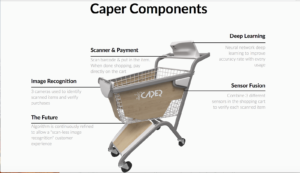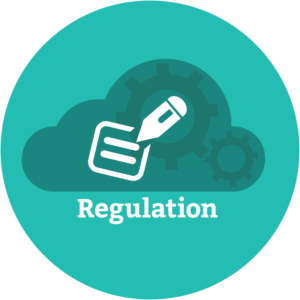The Impact of Shopping Carts on Consumers Behavior and Possible Actions to Resist
The shopping cart is the tool we use to acquire goods, in practice it can be seen as the boat to navigate on when we are engaged in shopping activity in the ocean of possible products to be acquired. This is particularly true if we refer to online shopping. Every consumer is constantly tracked and monitored: companies use data of our WiFi and our IPs to determine our location, track our actions, clicks, queries, history and so on in order to show us highly targeted advertisements, advice products what might satisfy our needs and even make conscious needs that otherwise would remain unconscious. It is reasonable to say that, in some cases, companies that have our data know our needs better than us, and this knowledge allows the companies to use the information in predictive analysis and therefore to anticipate our behavior. Moreover, by showing complementary products, accessories, and products that are in some way connected with something you bought, the companies are able not only to predict our behaviors but also to influence and shape it.

This is something that could cause a sense of frustration in the customer, although sometimes targeted ads simplify our life and inform us about some really interesting offer, knowing that we are seeing that advertisement because the companies have our data and know exactly what we do, obviously create some discomfort and a sensation of our freedom being violated. This, however, is true not only for online behavior and purchases. As we saw, technology in shaping the shopping experience also in physical shops. As a matter of fact, having a shopping cart with a scanner and connected to our profile and credit cards allows us to exit the store without queuing at the cashier but at the same time allows the companies to track our behaviors, preferences about products and to acquire private information about our shopping habits.
While many supermarkets have already been surveilling their customers' behaviors through cameras, loyalty card programs, or credit card data, the new digitized shopping cards incorporate various kinds of sensors that can be used to mine all kinds of data during a customer's grocery shopping. The consequences of this are still to be investigated and depend on where this data is used and to whom it is sold. It could potentially close the loop of one’s offline/online shopping as the gathered data during offline shopping could be used for targeted advertising and predictive modeling for online shopping.
Regulation: Why Do We Need It?
It is natural to ask ourselves Why is it important to protect our data? To answer we could list dozens of reasons but, in our opinion, the main ones are

represented by the need of protecting our fundamental rights and freedoms that are related to that data, to preserve our right of choice without being unconsciously pushed into certain buying behaviors, and to prevent misuses of our personal data, frauds, and other illegal or unethical behaviors. These were also the reasons that pushed the EU parliament to approve the GDPR 2018 that aims to give the consumers the choice of the information they want to reveal and force companies to treat data in a regulated and safe manner. As a matter of fact, the six guiding principles for this act were lawfulness, fairness and transparency, purpose limitation, data minimization, accuracy, storage limitation, integrity and confidentiality (security), and accountability. However, by definition, regulation is a rule made by a formal authority, in this case, the EU parliament gave European citizens the option to protect their data, but this does not mean that citizens will make use of this possibility.
Resistance

Resistance comes from taking an active stance against something. It is born from animosity against the status quo and the existing power relations. While resistance is a tool of objection, it is however not absolute in its form. Interpretations of resistance rely heavily on the structural reading of agency and structure. However, it presents itself in many different ways and is strongly embedded in the ethical and moral judgment and experience of injustice. Resistance is not necessarily measured by the consequences of the action, but rather the performance of self-empowerment that the objection that resistance offers.
In general, the more one uses the services of corporations tracking and monitoring one's data, the more one participates in their own data mining and surveillance. However, it is not always possible to reject the usage of these services. Some means to protect one’s privacy can be using a Tor browser to anonymize the location, plugins that block cookies and trackers or obfuscate one’s information. An obvious tool for online shopping would be a traditional ad-blocker. This sometimes does come with the disadvantage of not being granted access to the website's content though. It is important to stay alert about what information and data are being collected. In order to do so, projects like the “Data Detox Kit” (https://datadetoxkit.org/en/home) or “Trace my Shadow” (https://myshadow.org/trace-my-shadow) from the Berlin-based NGO Tactical Tech may help to make this visible.
Conclusions
As we described, both online and offline shopping carts are indented to shape our behaviors and emotions. If you do not trust us, try to observe the tiles on the supermarket next time you go shopping, you will see that these are small and meant to cause a lot of noise if you go fast with your shopping cart. In this way, you are almost forced to slow down and have a closer look at the goods and therefore you will have a higher probability to buy something that is not on your list.
With the advent of innovations and the decrease in their price, the increase in online shopping, profiling, and surveillance activities are easier for the companies and therefore they have even more tools to shape our behavior, have an impact on our feelings, and even create desires. We all should be aware of that. Fortunately, we can protect ourselves by using the tools available to us and by informing ourselves about the techniques used to influence us. The Eu parliament did a huge step forward by giving us the possibility to choose what to do with our data, now it is up to us to take active actions to protect our data and to avoid being conditioned by our shopping cards.
Authors: Vladimir, Suzan, Paul, Erik